ADB Trains Fijian Public Defenders on the Fiji Bench Book on Children
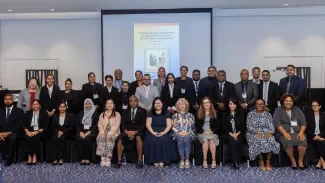
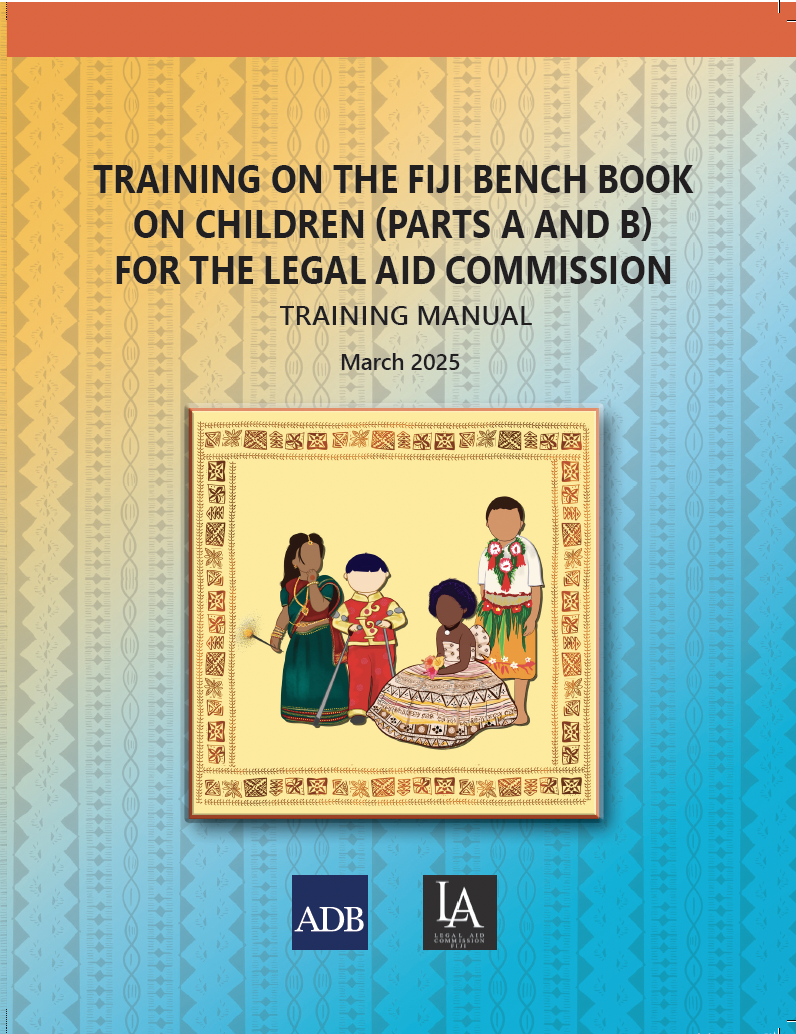
On 3–16 March 2025, the Asian Development Bank (ADB) conducted a series of workshops based on Parts A and B of the Fiji Bench Book on Children for 108 Legal Aid Commission (LAC) lawyers.
Parts A and B of the Fiji Bench Book on Children serve as a guide for dealing with children coming before the courts in criminal proceedings, including child complainants and witnesses.
The LAC is the designated public defender’s office in Fiji, providing free legal services to those unable to access legal services, including women, children, and persons with special needs. In line with the LAC’s mission, ADB provided LAC’s public defenders with tools and training to balance defendants' rights with those of child victims and ensure proper treatment of children in court.
LAC Director Seremaia Waqainabete highlighted this point in his opening remarks during the first workshop. He emphasized that: “It is very crucial that we balance the rights of children—we need to uphold the rights of children, at the same time [that] we pursue our case as defense attorneys. […] We need to be very, very sensitive as we approach children, especially in the court of law. We cannot treat them the way we treat adult witnesses."
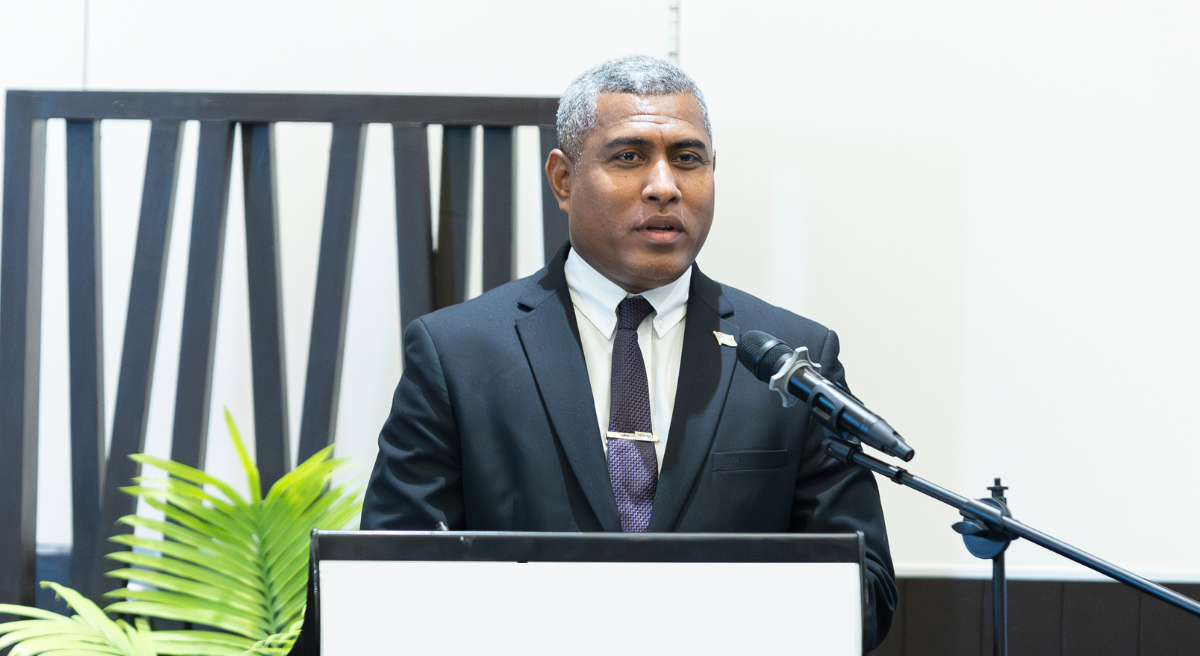
A multidisciplinary team of ADB experts delivered the training—Robyn Layton is a former Supreme Court Justice in South Australia and herself a co-author of the Bench Book for Children Giving Evidence for the Australian judiciary. Samar Minallah Khan is a behavior change, gender, and child rights specialist with a background in the anthropology of law and culture. Julia Davey specializes in gender issues, including cases with child victims, as a barrister. Finally, Siteri Nasa Navia is a former state prosecutor in Fiji and a specialist in the investigation of crimes against children.
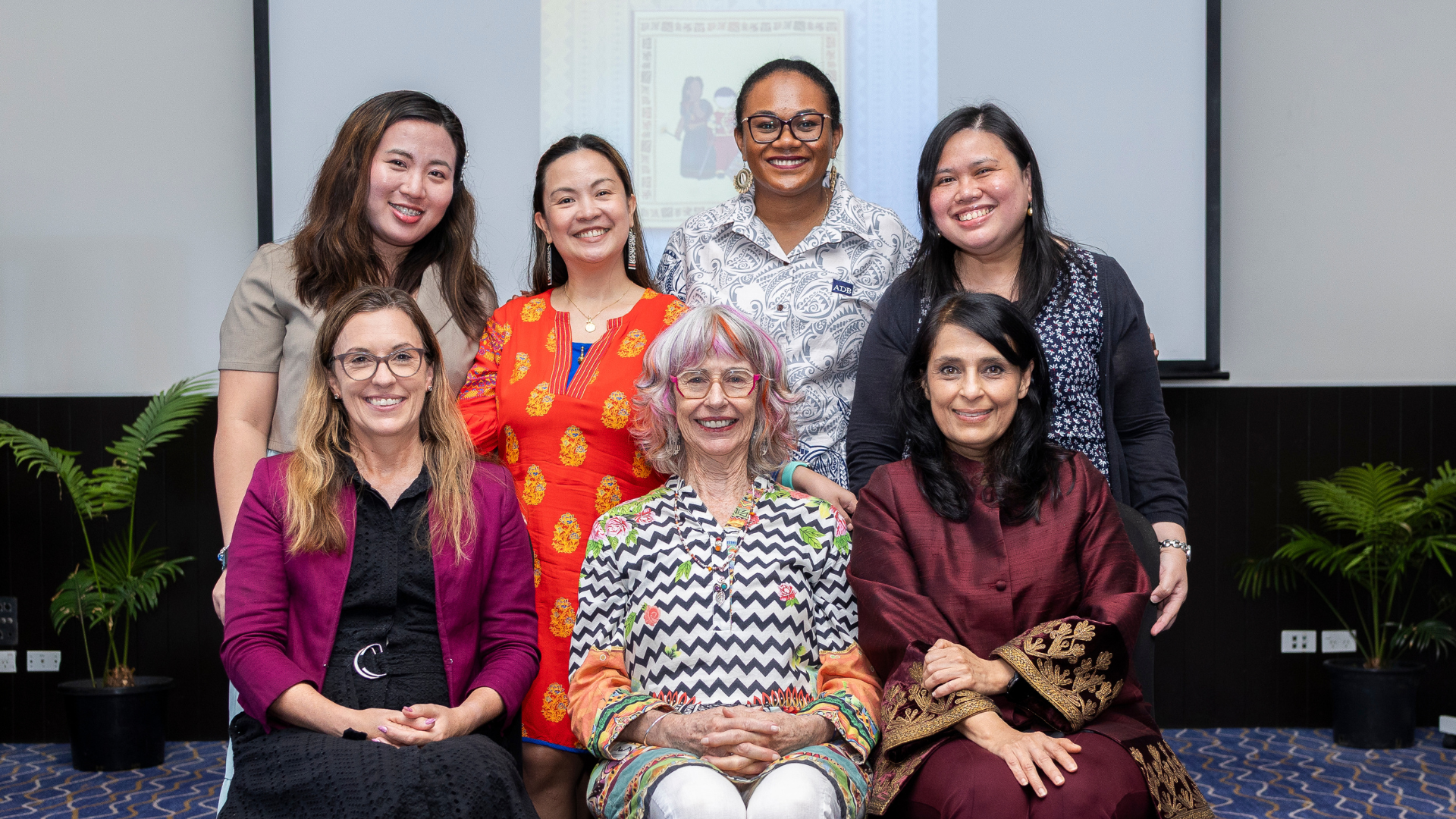
The ADB team then rolled out its training program through four three-day workshops in Nadi City, Fiji. Training modules covered key aspects of child justice—notably child development, social and cultural norms regarding children, the disproportionate impact of violence on children, particularly girls, and the needs of children with disabilities—and how to integrate these into communication and questioning techniques, pre-trial and trial procedures, and best practices.
This training for public defenders, along with the ADB-led training for the entire Fijian judiciary in August 2024 and for the entire Office of the Director for Public Prosecutions in December 2024, is part of ADB’s whole-of-sector approach to help the Fijian government develop a more balanced and equitable justice system, especially for children.
In her remarks, ADB Counsel Maria Cecilia T. Sicangco underscored that ADB's comprehensive support helps ensure that the whole sector—judiciary, prosecution, and defense—operates from the same knowledge baselines, principles, and standards, and shares the same appreciation for child justice. This strengthens the capacity of all justice sectors to address child protection issues and improve overall justice outcomes.
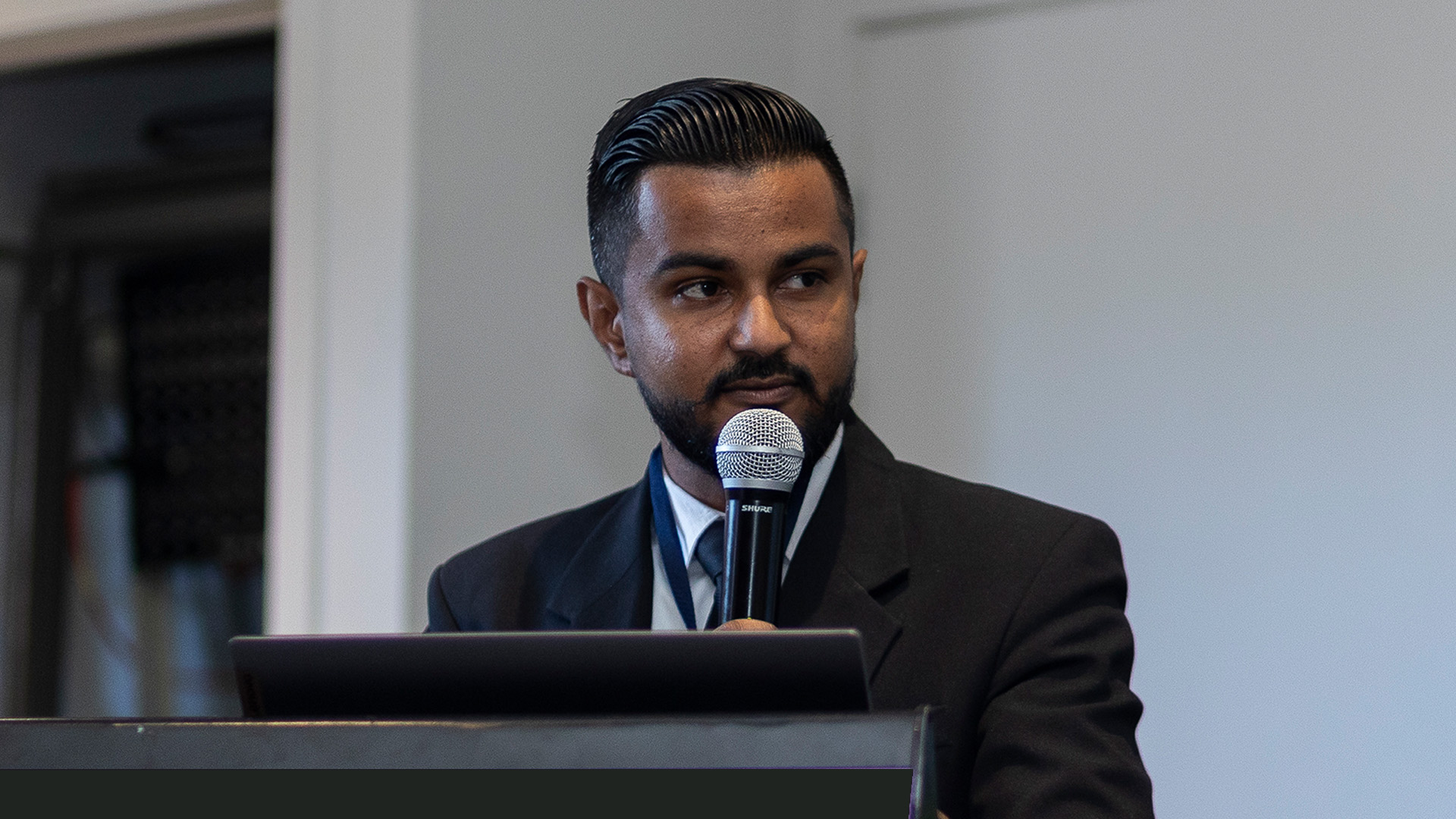
Kavshik Prasad, LAC’s Principal Legal Officer, closed the series of workshops by acknowledging the value of ADB’s gift of knowledge for LAC’s lawyers. “To the facilitators of ADB, you have…awakened us from a sleep with narrow vision for adult representation, into the consciousness of the dynamics of children. We realize that years of training and experience of adult representations could dangerously mold the legal practitioner in[to] being immune to the realities surrounding children. You have brought reminders and realizations of not just the how to approach children, but [also] demonstrated why it is so important to do so…We leave here with confidence that wherever our trained batches go, and who[m]ever they shall serve, they will carry with them the realizations of the trainings. They will, in one way or another, be able to share the best practices on how to approach and work with children.”
